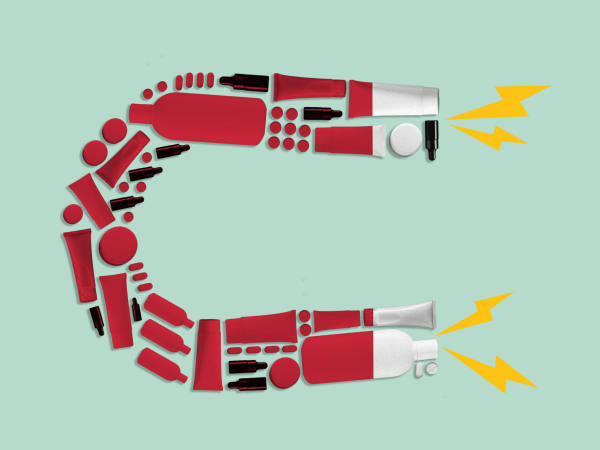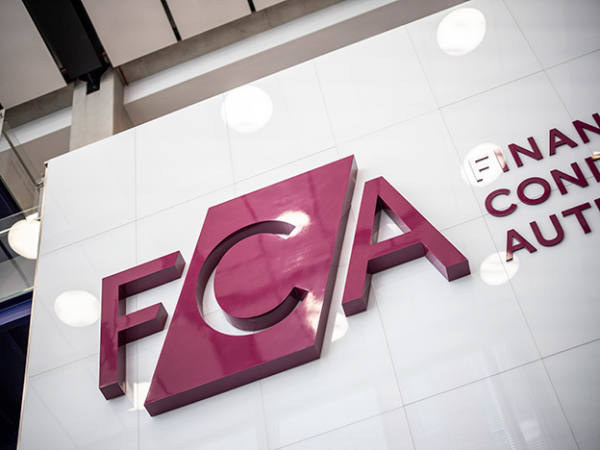Bodycote (BOY) is an apt name for a company that applies treatments to metals and alloys to make them more resilient.
- Strong balance sheet
- Cash generation improving
- Attractive valuation
- Operational changes
- Manufacturing activity still weak
- Margins well below previous highs
- Chief executive retiring
The Macclesfield-based group’s moniker was not dreamt up by an advertising agency, though. It actually dates back to the Bodycote family, which founded the company in 1923. It started life in the textiles game, but turned to metallurgy in the late 1970s under former chief executive Joe Dwek, who oversaw a 26-year transformation.
In 1972, Dwek took control of a small organisation with 11 sites in three countries. He moved Bodycote into the heat treatment market in 1979, and by the time he retired in 1998 it was a major player, with more than 150 plants in 17 countries. A profile of Dwek by the Mersey Basin Campaign, of which he was chair, said Bodycote’s market capitalisation increased from £3mn at the start of his reign to £1.4bn at the end.
Some 25 years have passed since the profile was published, but Bodycote is worth less now than it was then – its current market cap is just over £1.1bn. What went wrong?
Blowing hot and cold
Sales more than doubled between 1998 and 2022 (the last year for which accounts are available) but over a 24-year period this represents a fairly pedestrian compound annual growth rate of 3.6 per cent. There were growth spurts but also some severe periods of downsizing – especially during the global financial crisis. Between 2007 and 2009, revenue shrank by a third and Bodycote posted pre-tax statutory losses of over £100mn, but the £420mn sale of its testing business helped to shore up its balance sheet.
The annus horribilis that was 2020 proved equally tough. Sales dropped by 17 per cent to £598mn as the Covid-19 pandemic clobbered demand from both the aerospace and automotive sectors. During this period, Bodycote cut more than 1,000 jobs, or 18 per cent of its workforce, and closed 26 plants.
Profit margins also withered. In Dwek’s last few years in charge, Bodycote's operating margin exceeded 20 per cent. However, the last time Bodycote recorded this feat was two years after his retirement, in the first year of the new millennium.
Bodycote's two restructuring periods were more than a decade apart, but both were overseen by current chief executive Stephen Harris, who joined in the teeth of the global financial crisis in November 2008.
The more recent shake-up was in the works prior to the pandemic. Even before Covid hit, Harris was seeking “permanent structural savings” in Bodycote's operations, and wanted to reposition the company to reflect changes in its end markets.
Bodycote generates around a quarter of its revenue from aerospace and defence, a quarter from the automotive sector and the remaining 50 per cent from general industrial work.
In aerospace, it sought to reflect the shift by airlines away from a ‘hub-and-spoke’ model – in which planes gravitate around a central base – towards ‘point-to-point’ flying. This translated into reduced demand for large, wide-bodied planes and greater demand for narrowbodies. According to Airbus, narrowbodies will form 80 per cent of the new plane market over the next 20 years.
Similarly, in the automotive sector, Bodycote cut capacity serving combustion engine cars in western Europe and increased exposure to plants serving electric vehicle production in Eastern Europe.
Part of the plan was also to make the sites more flexible, allowing them to operate efficiently whatever the level of demand. Management wanted to invest more in Bodycote's higher-margin, specialist technologies arm too, which uses more sophisticated processes than standard heat treatment to strengthen parts and make them more resistant to wear or corrosion.
Bodycote was starting from a good position due to the specialist nature of its processes. The engineer is either a market leader or one of very few major players that can deliver them. They also generally emit less carbon than classic heat treatment techniques, meaning it can charge more.
Pandemic recovery
Bodycote’s post-pandemic record is one of gradual improvement, even though there have been setbacks along the way. In the first half of last year, revenue grew by 17 per cent to £420mn, and headline operating profit increased by 24 per cent to £62.8mn. If energy surcharges imposed on customers to cover higher fuel costs were stripped out, the company’s operating margin increased by 180 basis points to 16.5 per cent.
However, sales slowed as the year progressed, with the United Auto Workers’ strike in the US blamed for falling automotive revenues. Sales to customers in emerging markets also fell by 7 per cent, which was attributed to slowdowns in China and Eastern Europe.
Perhaps this explains the market’s lack of enthusiasm for Bodycote’s shares, which have fallen in value by 15 per cent over the past 12 months. They now trade at 11 times forecast earnings, well below their five-year average of 15.3 times. Enterprise value, which accounts for debt and is the favoured metric of private equity bidders sweeping the UK for bargains, is less than six times the 2023 consensus forecast cash profit of £211mn.
There are encouraging signs that sentiment is changing. Last week, broker consensus on the shares moved from 'hold' to ‘overweight’, according to FactSet, and long-term investor Artemis Fund Managers bought 3.67mn more shares, taking its total holding to 9.65mn, or just over 5 per cent of the group.
Artemis holds Bodycote shares in both its UK Select and UK Special Situations funds. The co-manager of the latter, Henry Flockhart, said that management had been focused on increasing the company’s margin potential and its return on capital employed, but pandemic-related shutdowns, the energy crisis in Europe and the chip shortage in the car industry had all caused disruptions to the business. With survey data on both sides of the Atlantic indicating that a slowdown in manufacturing activity is bottoming out, an improvement is expected.
“A recovery in end markets should lead to better operating leverage for Bodycote than the market anticipates as the headwinds over the past four years have masked the internal improvement,” he said.
Decent cash generation also adds options. Its free cash flow conversion ratio in the first half of 2023 improved to 90 per cent, from 63 per cent a year earlier, and by the end of October the company’s net debt (excluding leases) had fallen by almost £20mn to just £6.7mn.
This will increase again once Bodycote completes the acquisition of two companies in the US for $145mn (£114mn). Lake City HT and Stack Metallurgical are being bought for a combined multiple of around nine times their forecast cash profits for 2024 and “will be accretive to group margins and earnings per share from the first year post-completion”, management said. Their contribution is expected to exceed the company’s cost of capital from 2025 onwards.
Peel Hunt also believes Bodycote will become a more profitable business. The specialist technologies arm contributed 31 per cent of revenue in the first half of last year, up from 24 per cent in 2016, it said. Based on this and other improvements, the broker argued that the company should be capable of generating a margin of more than 20 per cent again, at least on a cash profit basis.
Harris can also be confident that he won’t need to embark on a third round of restructuring – if only because he is set to retire after the next annual general meeting in May. He will be succeeded by Jim Fairbairn, who has run several engineering businesses.
Harris hasn't transformed Bodycote to the same extent as Joe Dwek, but he leaves the company in a much healthier position than he found it. Crucially, this isn’t reflected in the share price yet.
| Company Details | Name | Mkt Cap | Price | 52-Wk Hi/Lo |
| Bodycote (BOY) | £1.13bn | 588p | 729p / 545p | |
| Size/Debt | NAV per share* | Net Cash / Debt(-) | Net Debt / Ebitda | Op Cash/ Ebitda |
| 411p | -£88.8m | 0.6 x | 82% | |
| Valuation | Fwd PE (+12mths) | Fwd DY (+12mths) | FCF yld (+12mths) | CAPE |
| 11 | 4.1% | 7.5% | 15.9 | |
| Quality/ Growth | EBIT Margin | ROCE | 5yr Sales CAGR | 5yr EPS CAGR |
| 13.3% | 10.8% | 1.5% | -5.4% | |
| Forecasts/ Momentum | Fwd EPS grth NTM | Fwd EPS grth STM | 3-mth Mom | 3-mth Fwd EPS change% |
| 9% | 13% | -6.4% | 1.5% | |
| Year End 31 Dec | Sales (£mn) | Profit before tax (£mn) | EPS (p) | DPS (p) |
| 2020 | 598 | 63 | 27.8 | 19.3 |
| 2021 | 616 | 88 | 35.8 | 20.0 |
| 2022 | 744 | 101 | 42.5 | 21.4 |
| f'cst 2023 | 809 | 117 | 47.8 | 22.5 |
| f'cst 2024 | 851 | 128 | 52.1 | 24.0 |
| chg (%) | +5 | +9 | +9 | +7 |
| Source: FactSet, adjusted PTP and EPS figures | ||||
| NTM = Next Twelve Months | ||||
| STM = Second Twelve Months (i.e. one year from now) | ||||
| *Includes intangible assets of £345mn, or 181p a share | ||||













